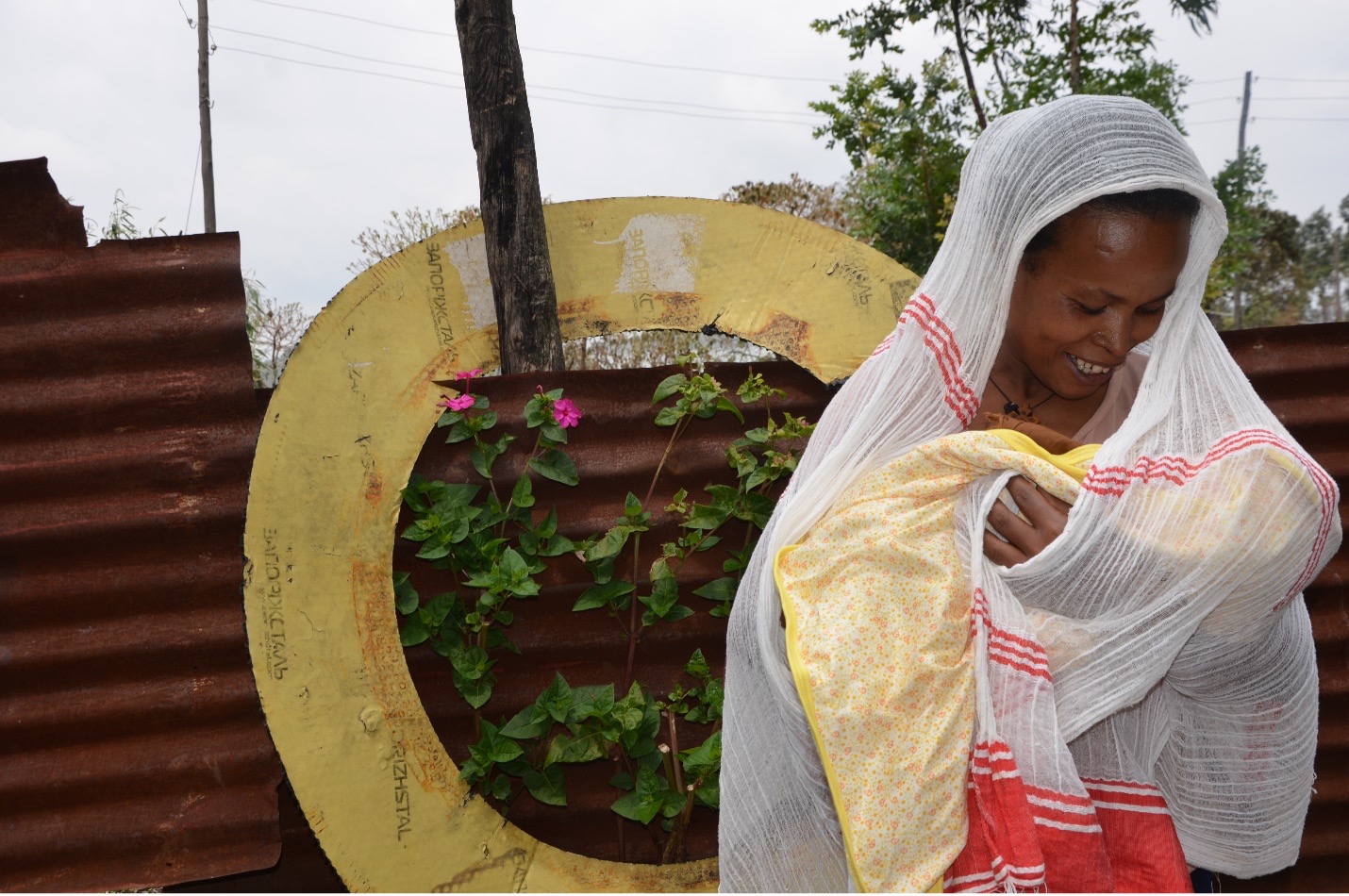ADDIS ABABA – Fantu Alemayehu, a member of a Saving and Credit Cooperative [SACCO] borrowed 3000 birr [US$ 86] three years ago while training in basic business and life skills. Today, she is happy that the money has transformed the livelihoods of all her family members.
Fantu is quoted as saying, “Sixteen years ago I dropped out of school from grade eight and migrated from a rural area in Northern Ethiopia, Gojam to Addis Ababa seeking a better life. I worked as a housekeeper for eight years earning only 70birr [US$ 2] per month. When I didn’t see improvement in my life, I got married. Although my husband is a supportive one, his little income from provision of cart transport service to the villagers, was not enough to meet our basic needs.”
When the Gender Transformative Climate Smart Agriculture and Agri–Business [CSAAB] programme launched by UN Women and SOS Sahel Ethiopia in Galan town, Fantu became among the beneficiaries. As a result, she says that not only hers and her family’s livelihoods have changed, she also became a model woman in her village for effectively using the loan and the skills she acquired.
She continues: “When I received 3000 birr, during the rainy season I bought Gurage cabbage seedlings, which has a high demand in the community, and planted in my garden. The 10,000birr income from sale of the cabbage, the seedlings, and the dry seeds, was the turning point for me and my family’s living conditions improvement. After I paid back the 3,000birr loan, I used part of the 7,000birr [US$ 200]to invest in sheep fattening for sale. Today, I am no longer dependent on my husband’s income to purchase what I need. For instance, because of the labour and fuel saving Injera baker I bought, the smoke from the old baker is no more affecting my health.”
Being economically empowered not only enabled Fantu to support her existing family in a better way, she also realised her dream of having a second child, “When I gave birth to my first child six years ago, the burden on the little income increased and my husband and myself used to struggle for survival. When our livelihood improved, we decided to have the second child and it has been only 50 days since I gave birth.”
As a model woman in her community, Fantu was awarded 25,000birr [about US$700] on business award competition for successfully using the 3,000birr loan and timely repaying. This motivated her to expand her business and to contribute more to her community in Ethiopia.
She says: “Since I became beneficiary of the programme, I have saved 40,000birr [about US$ 1146] including the award. If I sale the six sheep I currently own, I estimate to have 50,000birr [about US$1433] more and my short-term plan is to purchase goats and fatten for sale as they take shorter time to breed. My support to the women in the community will continue by sharing my experiences and by providing them with improved Gurage cabbage seedlings.”
Fantu adds that her husband, Buziye Yibeltal is one of the reasons behind her success. He supports her in the household duties including cooking after he took the training on Male Engagement and Gender Model Family offered under the programme.
UN Women in collaboration with SOS Sahel Ethiopia has been applying the approach to four cooperatives and enterprises of 200 members, which comprise more than 1000 family members. The cooperative in Galan town has 54 members.
A weekly contribution of 100birr [about US$ 2.9] by each member has reached their saving to 190,000birr[about US$ 5447]. This is enabling more members to borrow from the revolving fund and to invest in various businesses to improve theirs and their families’ livelihoods.
Source: UN Women Africa
Buy your copy of thecooperator magazine from one of our country-wide vending points or an e-copy on emag.thecooperator.news
